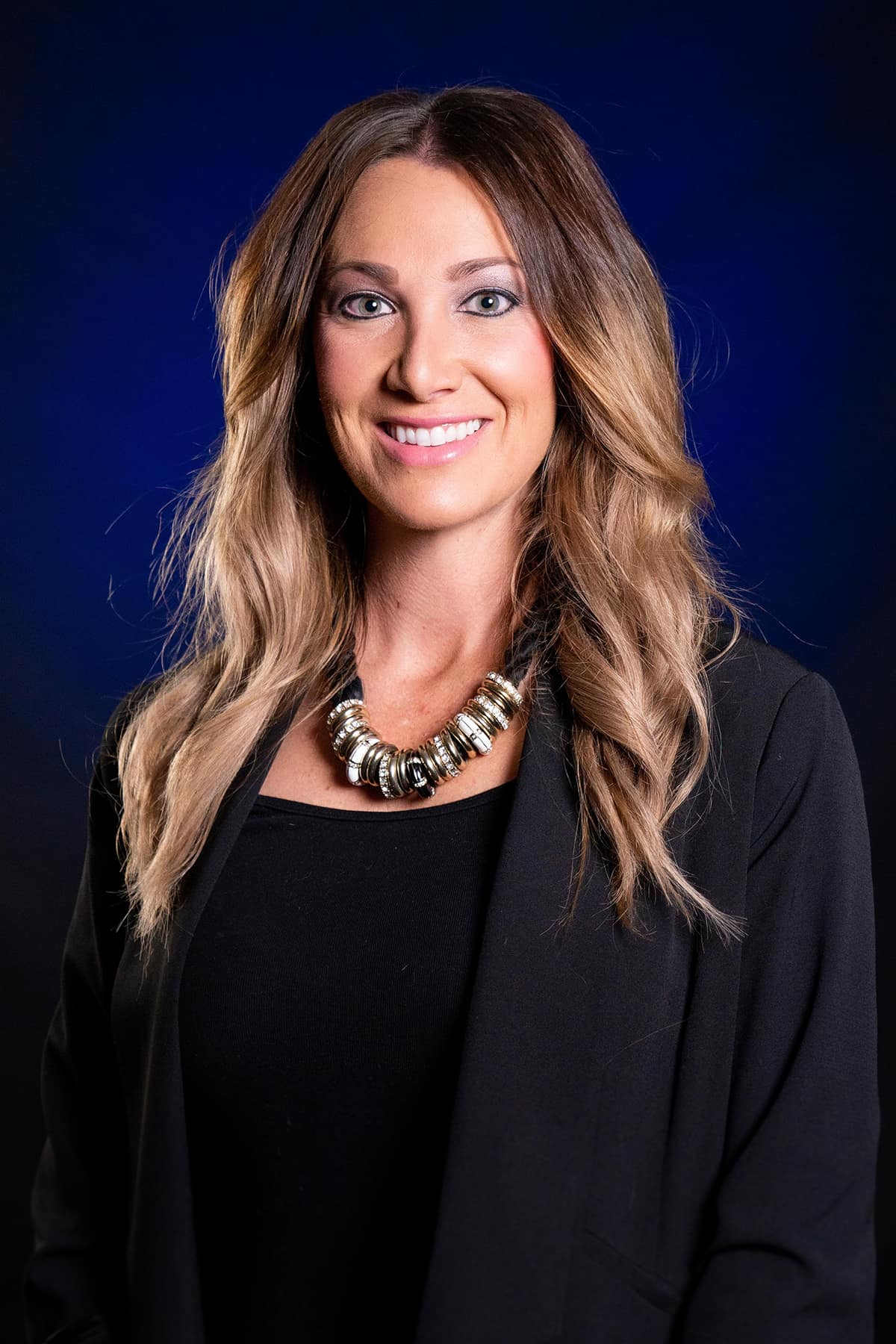

What is Forensic Accounting and Fraud Examination?

Embry-Riddle’s Bachelor of Science in Forensic Accounting and Fraud Examination (FAFE) is within the College of Business, Security and Intelligence on the Prescott Campus. First launched in 2015, the program has grown exponentially over the years as interest in the field of forensics has grown. Embry-Riddle is one of few schools in the nation that offers a hands-on, undergraduate forensic accounting degree.

Samantha Friedlan, Accounting Instructor in the School of Business. (Photo: Embry-Riddle/Connor McShane)
FAFE student Sydni Stoffel ('23) describes the degree program as, “You are doing financial investigations. You learn about the profession of accounting and what they do, and then you learn how to work it backwards as an investigator. . . Understanding the accounting role forward and backward is forensic accounting.”
One of Sydni’s favorite professors, Samantha Friedlan, told us what we need to know about forensic accounting and fraud examination.
What is forensic accounting and fraud examination?
Forensic accounting is a specialized field within accounting that involves the application of accounting principles and investigative techniques to uncover financial discrepancies and potential fraud.
Forensic accountants are trained to examine financial records, transactions and reports with a focus on providing evidence that can be used in legal proceedings. Their work often extends beyond traditional auditing practices to delve into complex financial scenarios and identify irregularities.
On the other hand, fraud examination is a broader term that encompasses various methodologies and tools used to detect, investigate and prevent fraudulent activities. It involves the systematic examination of financial and non-financial information to uncover fraudulent schemes, misappropriation of assets or other deceptive practices.
"Both forensic accounting and fraud examination play critical roles in ensuring financial integrity, protecting against financial crimes and aiding legal processes when fraudulent activities are identified."
What types of jobs can students aim for after graduation?
Fraud examiners and forensic accountants can pursue various career paths across different industries. Some common job roles for individuals in these fields include:
- Anti-Fraud Specialist
- Compliance Officer
- Corporate Investigator
- Forensic Auditor
- Fraud Analyst
- Fraud Litigation Specialist
- Government Forensic Accountant
- Internal Auditor
- Risk Management Specialist
- Special Agent (FBI, IRS, etc.)
Where do forensic accountants/fraud examiners usually work?
Forensic accountants and fraud examiners can be found working in a variety of settings across different industries. They are commonly employed by accounting firms, where they may offer specialized forensic accounting services to clients facing financial irregularities or potential fraud. Additionally, many forensic accountants and fraud examiners are part of internal audit teams within corporations, where they play a crucial role in identifying and preventing fraudulent activities within the organization.
Government agencies, such as the Federal Bureau of Investigation (FBI), Internal Revenue Service (IRS) and other law enforcement entities, often employ these professionals to investigate financial crimes. Some individuals in these fields also choose to work independently as consultants or expert witnesses, providing their expertise on financial matters in legal proceedings. The diverse range of employment opportunities reflects the widespread need for their skills in both the public and private sectors.
What are the necessary steps to work in this field?
To embark on a career in forensic accounting and fraud examination, individuals typically follow a series of essential steps:
- A strong educational foundation is crucial, with most professionals holding at least a bachelor's degree in accounting, finance or a related field.
- Pursuing additional certifications, such as the Certified Fraud Examiner (CFE) or Certified in Financial Forensics (CFF), enhances one's credibility and expertise in the field.
- Gaining practical experience through internships or entry-level positions in auditing or accounting is invaluable for developing the necessary skills.

WHITE COLLAR CRIME
What are the benefits and challenges of working in this field?
Working in forensic accounting and fraud examination offers a range of benefits and challenges.
On the positive side, professionals in this field often find their work intellectually stimulating and rewarding, as they play a crucial role in uncovering financial misconduct and preventing fraud. The work is diverse, with opportunities to delve into complex financial scenarios and collaborate with multidisciplinary teams. Additionally, there is a high demand for expertise in these areas, leading to competitive salaries and job security.
However, challenges include the often intense and time-sensitive nature of investigations, requiring meticulous attention to detail and a commitment to meeting deadlines. The work may involve navigating legal complexities, and professionals may need to testify as expert witnesses in court, requiring strong communication skills. Staying abreast of evolving financial technologies and fraud schemes is a continuous challenge, necessitating ongoing education and training.
Despite these challenges, the sense of purpose in contributing to financial integrity and justice, coupled with the dynamic nature of the work, makes forensic accounting and fraud examination a compelling career choice for those with a passion for uncovering financial truth.
If you're interested in the world of white-collar crime and financial investigation, apply to Embry-Riddle today and start your journey.

